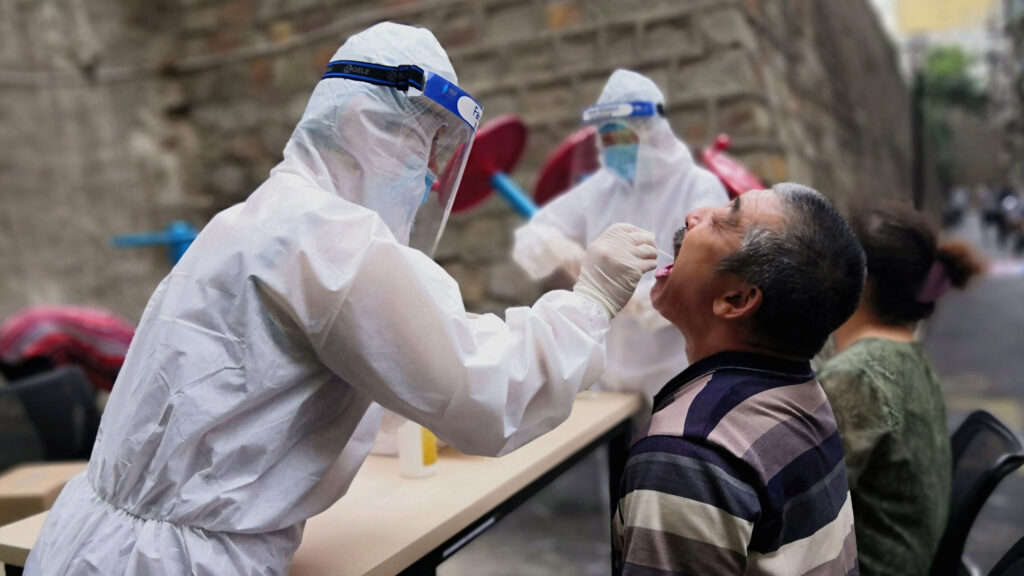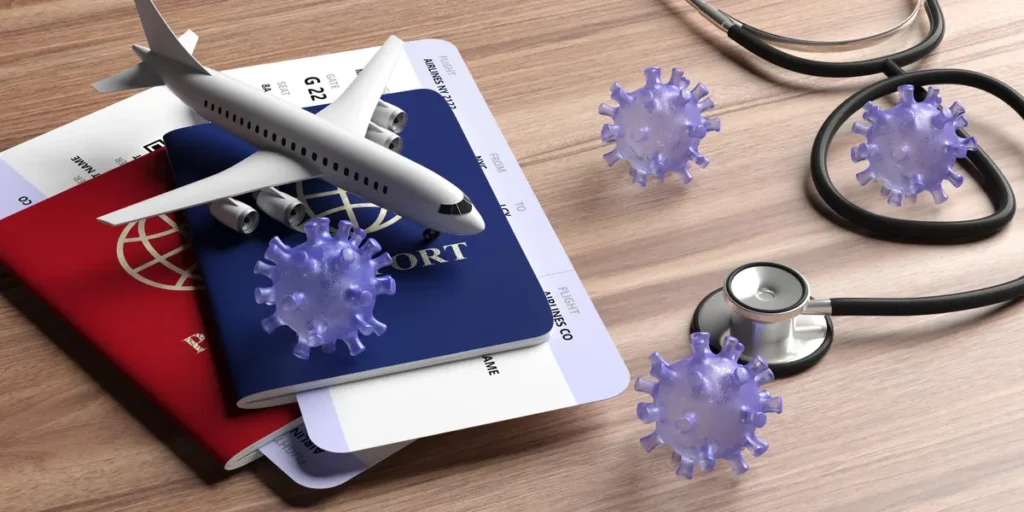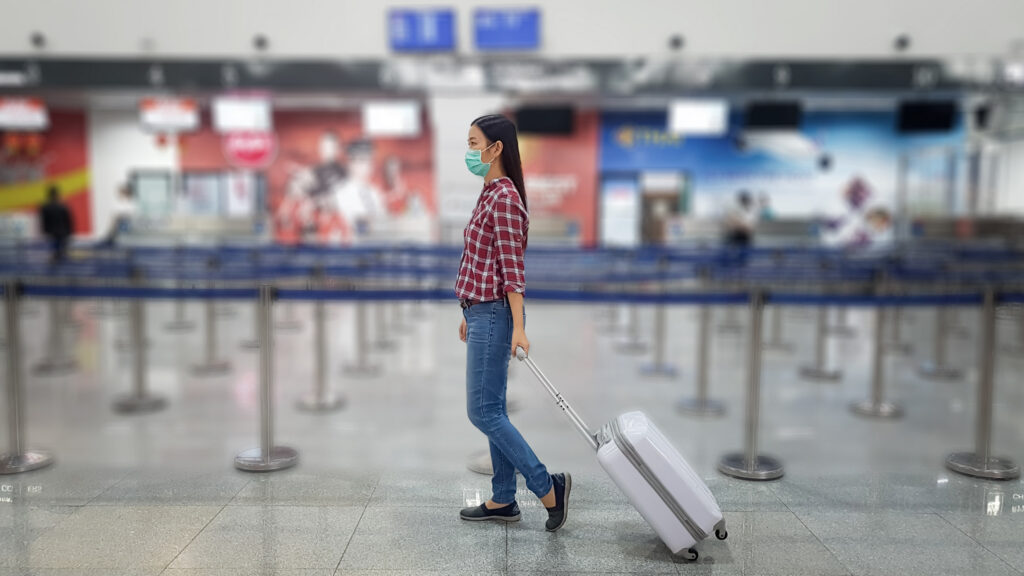
As a part of efforts to stop the spread of coronavirus disease (COVID-19), the Indian government is letting a lot of foreigners into the country starting June 15. All they need is a new or renewed visa. Approved business explorers include people who have the administrative and technical skills needed by a foreign company in India or an Indian company sending a greeting letter. Other approved business explorers include Overseas Citizens of India (OCI) cardholders and foreign nationals who are related to OCI cardholders or Indian residents. See here for the national and foreign travel restrictions in India because of the coronavirus.
People who are related to people who are already in India and have discretionary, authority, or UN/worldwide groups visas can also enter India. Travelers in this category must go to Indian offices to get new visas, regardless of the state of their old visas. They may enter the country on unplanned trips because of a restriction that will last until June 30 on business trips around the world. As a result, India is still enforcing its fifth set of restrictions across the whole country until June 30. Experts expect people to wear facemasks in public, take social removing steps, and stick to the daily time limit of 2100-0500. Schools and entertainment venues are still closing down, and big parties are still not allowed. At the same time, companies are expected to let employees work from home as much as possible.
People who are in high-risk groups, like basic workers and people who travel every day for work, live in control zones, or are allowed to travel between districts or states, must sign up for the national Aarogya Setu mobile app so that they can be contacted. Even though there will still be a lot of restrictions, officials plan to loosen up some measures in areas outside of control zones over the next few weeks.
What’s Inside the Book

National Limits on Travel In India, the coronavirus:
Since June 8, rules across the country have let states bring back open and strict areas, as well as mechanical, retail, and business places with enough safety measures, in areas that aren’t in regulation zones. Still, most states still don’t allow the redevelopment of large market areas like shopping malls, sports offices, fast food restaurants, and food preparation services. Small businesses are usually expected to keep their staff and work hours as close to 9 a.m. to 5 p.m. as possible. Aside from Metro trains, all private and public cars can keep going outside of control zones, but with social removing.
Even though most states have made it easier to move between districts, there are still some places with restrictions, like Uttar Pradesh, where officials have closed the state’s property borders with Delhi except for essential services. Comparative steps have been put in place in Rajasthan State, which has closed all of its streets until June 17 except for those that had permission to do so earlier. Similar types are expected to be found in different areas until June, depending on how many cases are in each area. Household flights have continued to be limited.
Interstate and universal travelers should usually be alone for at least 14 days. Indicative travelers will probably do this at their assigned offices, while asymptomatic people can do it at home or for a fee. Just People who will only be in Karnataka State for 48 hours or less are not required to go through the testing and isolation process. These travelers must ask for a movement pass ahead of time. Institutional isolation for up to 14 days is required in the following goals for the people who are with the person:
Andhra Pradesh:
People traveling from Chennai, Delhi, Mumbai, Gujarat, Madhya Pradesh, and Rajasthan will be separated from other travelers.
To get to Himachal Pradesh, people coming from Ahmedabad, Gujarat; Chengalpattu and Chennai, Tamil Nadu; Delhi, Gurgaon/Gurugram, Howrah, Kolkata, and West Bengal; Hyderabad, Mumbai, Pune, and Thane, Maharashtra; and Jaipur, Jodhpur, and Indore, Rajasthan will be institutionalized.
Jammu and Kashmir:
All travelers will be tested when they arrive. Those who do well will be locked up in designated buildings, while those who don’t will be told to stay at home alone for 14 days.
Travelers visiting Arunachal Pradesh, Assam, Meghalaya, Mizoram, Nagaland, and Sikkim must be isolated in designated offices. After the institutional isolate ends, they are required to be isolated at home for an additional 14 days. All explorers from Chennai, Delhi, and Mumbai, as well as other suspicious travelers, are ordered by Tripura State to be institutionalized and tested.
West Bengal:
Travelers from Delhi as well as Maharashtra, Tamil Nadu, Gujarat, and Madhya Pradesh will be put in separate homes for seven days. It is possible that they will be put in separate homes and tested again.
There is no relaxing in regulation zones, which are places within 1 km (0.6 miles) of a detailed COVID-19 group with at least four cases. Depending on the level of risk, close organizations may make the zone bigger than 1 km. State groups and the cops will continue to support and push for control measures. People who live there must stay inside, unless there is an emergency. Authorities usually bring basic goods to people’s homes, and health screenings can happen from door to door. You can’t do business, drive a private or public car, or go through a certain section or exit.
The crisis and energy administrations will continue to work. Banks and stores that sell basic items like food, medicine, and fuel will also be able to operate, but the government will likely set the prices, hours, and how to behave. In some areas, people may buy a lot of things at once, which can lead to shortages of basic goods.
There could be irregular clashes if groups try to approve business terminations or fight official requests. Police may force loud groups to split up. People who break the law may face legal action. Huge parts of big cities like Ahmedabad, Chennai, Delhi, Hyderabad, and Mumbai are control zones and will possibly see some moderate relaxation.
Limits on international travel The coronavirus:
Most universal travel is still safely banned, but freight flights are still running. Global business planes will not be able to leave or come back to India until at least June 30. There will be some exceptions for the repatriation of Indian citizens and foreigners who have been left in India, as well as business travelers without B-3 visas and their families. Showing travelers must self-isolate for 14 days; asymptomatic travelers will do so at an assigned office for seven days and then at home for another seven days; and indicative travelers will do so at a clinical office.
Travelers who want exceptions or waivers must talk to experts about their entire planned destination and journey states before showing up. Government officials also want visitors to download the Aarogya Setu mobile app so they can keep in touch. Experts are telling people in India to put off any unnecessary trip around the world.
Experts have stopped giving out visas and have recently stopped giving out visas to all global travelers except those with most business, strategic, official, UN/worldwide association, work, and project visas. People from other countries who are already in the country can apply online for a visa extension.
Authorities are letting some remote residents, Indian citizens, and long-term visa users who are stuck in India buy seats on Air India (AI) flights leaving India until June. The main job of the planes is to bring back Indian citizens who were left behind abroad during the COVID-19 pandemic.
These trips go to airports in the US, the UK, Bangladesh, Malaysia, the Philippines, Saudi Arabia, Singapore, and a number of Central Asian countries. People from outside of India who want to take repatriation flights must first confirm that they are allowed to enter the country by checking with the country’s foreign safe haven and then purchase their tickets through AI or its subsidiary, Air India Express (IX).
In the next few days, more steps could be taken, especially if the number of in-country cases rises.

Tips for Traveling:
Follow all formal instructions and limit your outside activities as much as possible. Adhere to national safety and health measures. Make sure that your business plans, transportation, work, and vacation plans are still valid. Don’t settle for ease of living without committing to moving forward. If you see signs linked to COVID-19, you might want to put off traveling because they might lead to more research and delays. Talk to trusted friends to get more information and direction.
Keep up with how you talk about politics. Guarantee that other courses of action would lead to more troublesome steps or worsening of current problems. Rethink and check your non-emergency health plans. Make sure you can get simple things, and be ready for lines and delays at malls that are accessible. Bring the right IDs and pay attention to all security alerts.
Stress important health precautions, like washing your hands with soap and water or a hand cleaner that contains alcohol if soap and water are not available. When you cough or hack, be polite by hiding your cough or hack with a disposable tissue, keeping up good manners with others, and washing your hands. There is no proof that flu shots, antitoxins, or antiviral drugs will stop this illness, which shows how important it is to take regular necessary health precautions.